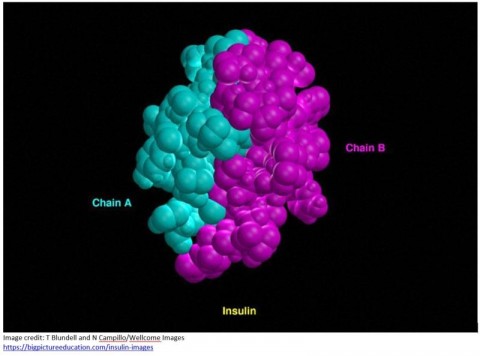DrCarney.com Blog
Does Insulin Make You Fat?
Have you heard the one where the question is asked, "Do these clothes make me look fat?" And the reply is; "No... the fat makes you look fat."
It is often promoted, by many doctors, nutritionists and other professionals that insulin is responsible for loading fat into our cells. For the past 29 years, as a Type-1 diabetic, I have enjoyed a very intimate relationship with insulin. After living a study of insulin for nearly three decades, I have become rather fond of it. With that, I feel compelled to come to its defense.
It is true that blood-insulin levels are always elevated when gaining weight. It is also true that insulin enables the energy used for storing fat. Even with these facts, I don't think it is fair to blame insulin as the villain. That would be like blaming firemen for fires because every time you see a building on fire, it is surrounded by firemen.
Everything our cells do requires energy and that energy is enabled by insulin. The amount of insulin required for any given energy is determined by the metabolic efficiency. High efficiency is synonymous with Insulin Sensitive (more energy with less insulin). Low efficiency is Insulin Resistance (more insulin, less energy). One of the top contributors to insulin resistance is fat. The more fat that is consumed, the higher the insulin resistance, thus the more insulin that is required, thus the more insulin that is produced. Likewise, less fat consumed means less insulin resistance, thus less insulin is needed and produced.
So, yes, while insulin does enable the energy to store fat; the fat must be provided (eaten) before it can be stored.
Please understand that I am not a medical professional in any capacity. This writing is only to share my experience and what I have learned from it.
Nothing in life is more inhibiting, failing or debilitating than the belief; "I Can't."
Nothing in life is more freeing, enabling or successful than the belief; "I Can."
DrCarney.com allows Member Blogs. Opinions in Member Blogs are views of the Member Blogger and not necessarily of Dr. Carney. Registered Users may request a FREE upgrade for blogging permission. Bloggers agree to support Dr. Carney's Starch-Smart-System.
When you subscribe to the blog, we will send you an e-mail when there are new updates on the site so you wouldn't miss them.




